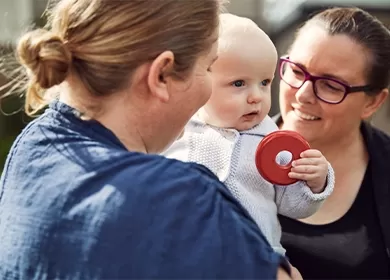Changes to blood and plasma donation rules announced for cancer survivors
People who have fully recovered from many cancers can now donate blood and plasma in Australia 12 months after finishing treatment under a rule change announced today by Australian Red Cross Lifeblood.
Those who have had cancer will no longer have to wait five years to donate, provided they have written confirmation from their doctor that they are in remission and meet all other health criteria. Those who have had blood cancers will continue to be unable to donate.
A recent survey by the Kirby Institute, UNSW revealed that over half (54%) of the population believed having cancer made people ineligible to give blood for life. Another 28% of the population were unsure, highlighting a large misconception that could be hindering donations.
Lifeblood Executive Director Cath Stone said the change would provide a greater opportunity for those who have had cancer to safely give blood and plasma while strengthening Australia’s blood supply at a time of record-high demand.
“Cancer patients are the largest users of blood in Australia; they need 11,000 donations each week. Many cancer survivors have relied on blood transfusions and plasma medicines during chemotherapy or surgery, and we know many are eager to give back,” Cath said.
Lifeblood research found that the current five-year wait can be safely reduced to 12 months, with international evidence showing it’s not necessary for donor or patient safety. Large-scale studies have confirmed that cancer is not transmissible through blood transfusion. As with all changes to blood donation rules, this change has been approved by the Therapeutic Goods Administration (TGA).
“Cancer diagnoses usually increase with age and our older donors often have more time to donate.
“Our current five-year wait-time disproportionately affects them being able to give back when it’s safe to do so,” Cath added.
On average, more than 5,000 potential donors are asked to wait to donate every year due to a cancer diagnosis, a number that has been increasing every year. Donors are less likely to return after long wait-times.
All donors will continue to undergo standard health checks and complete a detailed questionnaire. Only those who are well and meet all eligibility criteria will be able to donate.
Cath said that it was likely that many Australians didn’t realise the role blood donation played in supporting people with cancer.
“As we see the number of cancer diagnoses increasing, we’re also seeing an increase in the demand for blood to help cancer patients through their treatment. Supporting people with cancer is one of the greatest reasons to donate,” she added.
To find out about donating blood, plasma, or platelets, call 13 14 95 or visit lifeblood.com.au


